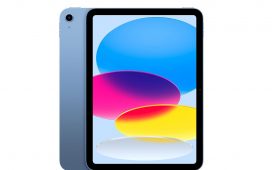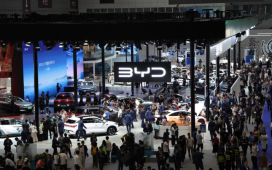Once the undisputed king of premium smartphones in China, Apple is now seeing its throne slip away. A mix of tariffs, shifting loyalties, and rising nationalism has pushed Chinese consumers to favor homegrown tech brands—and the impact is impossible to ignore.
A Dramatic Drop in Foreign Smartphone Sales
According to the China Academy of Information and Communications Technology, foreign smartphone shipments in China fell by nearly 50% in March, marking a stunning retreat for international brands. Apple, once leading the market, has now slipped to fifth place, holding just 14.1% of the market share.
Local competitors like Huawei, Xiaomi, Vivo, and Oppo have surged ahead, enjoying strong double-digit growth and dominating both the mid-range and high-end segments. This isn’t just a shift in market dynamics—it’s a reflection of evolving consumer sentiment.
From Best-Seller to Underdog
Apple’s decline hasn’t been sudden, but it’s become more pronounced in recent months. In a rare move, the company began offering early discounts on iPhones, breaking with its typical pricing strategy. This is a clear sign that Apple is feeling the pressure.
South Korean tech giant Samsung knows this story all too well. Once commanding 20% of China’s smartphone market in 2013, Samsung has since plummeted to less than 1%, effectively becoming a fringe player in a market it once helped shape.
A Rising Tide of National Pride
What’s fueling this shift? Beyond pricing or performance, consumer behavior in China is increasingly influenced by nationalism. The preference for domestic brands has intensified since the imposition of U.S. tariffs and trade restrictions—an economic backdrop that’s pushed foreign products into the realm of geopolitical symbolism.
To support this shift, China’s Ministry of Industry and Information Technology rolled out subsidies for smartphones under 6,000 yuan (around €830), a range where most Chinese brands thrive. This policy gives local companies a clear competitive edge.
Huawei’s Impressive Comeback
No story better captures this shift than Huawei’s resurgence. Once hammered by U.S. sanctions that cut it off from key technologies, Huawei has since bounced back by building a self-sufficient ecosystem. Its revival aligns with Xi Jinping’s broader vision of technological independence, positioning the brand as both a tech leader and a symbol of national resilience.
Meanwhile, Samsung is attempting a re-entry into the Chinese market with its Galaxy C line (“C” for “China”), but faces an uphill battle. Consumer memory of past tensions—such as the backlash following the 2015 THAAD missile defense dispute between South Korea and the U.S.—still lingers.
A Tough Road Ahead for Foreign Brands
Apple and Samsung are now facing more than just declining sales—they’re navigating a market where their foreign identity is now a liability. It’s no longer enough to deliver cutting-edge hardware; success in China now requires cultural alignment, strategic pricing, and deeper integration with local networks.
To remain relevant, both tech giants will need to rethink their value proposition, localize their strategies, and perhaps most importantly, rebuild trust with Chinese consumers who are increasingly voting with their wallets—and their values.
The message is clear: in today’s China, homegrown pride is driving consumer choice, and international tech leaders must adapt or risk being left behind.
Similar Posts
Find and win
A treasure is hidden in this article! Share it to start the game and try to uncover the secret word.
The first 10 people to submit it via the form that appears after you share will win a surprise prize!
Good luck










